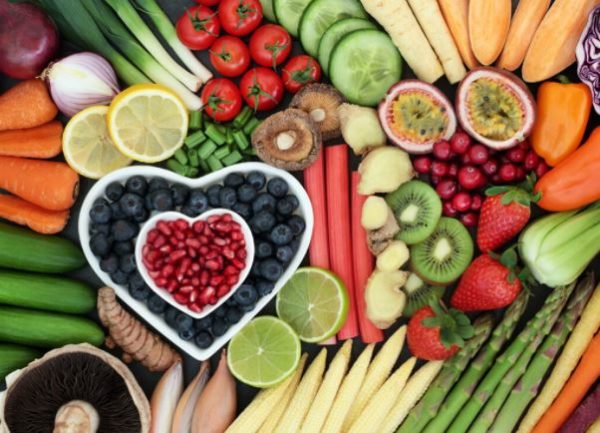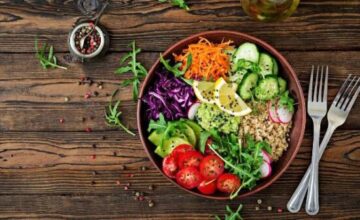
The vegetarian diet has gained much popularity in recent times; everyone is switching to a vegetarian diet for a healthier lifestyle.
And the reason most people are turning into vegetarians diet is because it offers several health benefits which includes reducing the risk of heart disease, controlling blood sugar levels, and helping in weight management and so on.
Studies have shown that healthy eating may be best achieved with a vegetarian diet, which encourages the consumption of whole, plant-based foods and discourages the consumption of meat, eggs, dairy products, refined and processed foods.
If you are planning to adopt a vegetarian diet, you need to ensure that you are getting adequate nutrients so that your body doesn’t have a deficiency in certain nutrients.
In this article, we’ve listed down the most common mistakes that you should avoid while following the vegetarian diet. Take a look below:
1. Not eating enough protein
Protein is an essential macronutrient required by the body for building and repairing tissues, making enzymes and hormones. Many who follow a vegetarian diet do not include enough amounts of protein-rich foods into their diet. Consuming protein-rich foods will increase muscle mass, keep you feeling fuller for longer and reduce cravings. There are plenty of plant foods high in protein that will help you meet your protein requirements. These plant-based foods include lentils, nuts and seeds, beans, nut butters, mushroom and green peas. Try incorporating at least more than one of these foods in each meal.
2. Not drinking enough water
If you are following the vegetarian diet, you should drink plenty of water throughout the day. The vegetarian diet includes high fibre intake and drinking ample amounts of water can help in better digestion and aid the fibre move smoothly through the digestive tract, thus preventing bloating, gas and constipation.
3. Less intake of vitamin B12
Vitamin B12 is needed by the body for the synthesis of DNA and for cellular energy production. Vitamin B12 is mainly found in animal-based foods such as meat, poultry, eggs, shellfish and dairy. Since, there are very few vegetarian food sources of vitamin B12, vegetarians have a higher risk of vitamin B12 deficiency and a deficiency in this vitamin causes fatigue and memory problems. So to lower the risk of vitamin B12 deficiency, you can include nutritional yeast, mushrooms and some algae into your diet as they contain vitamin B12.
4. Not consuming enough calcium-rich foods
Calcium is an important mineral required to keep your bones healthy and strong, promote the functioning of the nervous system and aid in proper working of the muscles and cells. A deficiency in calcium can lead to osteoporosis and osteopenia. Dairy products are high in calcium and those who don’t consume dairy products should get their calcium intake from other plant-based foods such as broccoli, bok choy, almonds, kale, oranges and other fortified foods as they are good sources of calcium.
5. Consuming few calories
Calories are the primary source of energy for the body and the body requires a certain amount of it to function. Consuming too few calories can lead to a deficiency in nutrients and a slow metabolism. Make sure to meet your daily calorie needs by adding more fresh fruits and vegetables into your diet.
6. Swapping meat with cheese
Since the vegetarian diet doesn’t include meat, most vegetarians swap meat with cheese to add in various kinds of dishes such as pasta, salad and sandwiches. Although cheese contains a significant amount of protein, vitamins and minerals, it can’t replace the nutrients found in meat. Instead of replacing meat with cheese, incorporate other plant-based foods that could be used as a replacement for meat such as chickpeas, lentils, beans and quinoa.



